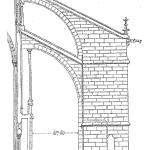
Reliability engineers learn basic tools and techniques most often from others with that knowledge. During our careers, we also continue to learn and often find ourselves teaching. Even when mentoring we find ourselves learning. Being a deliberate and active student and teacher is a great way to remain inquisitive and helpful.
Learning and teaching route to success
Formal education will make you a living; self-education will make you a fortune. [1]
Learning never stops.
As reliability engineers, we constantly have something to learn. For those unfamiliar with reliability engineering, they have a lot to learn from new materials, failure analysis tools, customer expectations, and the latest modeling software packages. We also constantly learn from our peers about their disciplines, tradeoffs, considerations, and inventions. We learn about business systems, customer interactions, and financial systems.
We can and should learn as much as we can.
Being a valuable member of any team means being able to understand how reliability engineering fits in with all the other elements of the company. To be effective we should know the motivations, concerns, dilemmas, and obstacles for any group in the organization.
Moreover, when working to improve the reliability of a product, if we can make other groups’ life easier, we should do so.
Building a career relies on knowing what motivates the other people in the room. Understanding them and their contribution to the product allows us to make recommendations that help them and improve product reliability.
Keep learning!
Self-education is important. You can take online courses; EDX [2], Coursea [3], and others offer a wide range of material for little or no cost.
Taking a course in something that interests you, even something not directly related to reliability engineering such as how to use Adobe Photoshop may lead to improvement of your presentations or website graphics.
Besides just being curious and learning from everyone and anyone you meet, you should deliberately seek out new material in reliability engineering. Attending webinars, workshops, and conferences are also valuable. You should subscribe to at least two professional journals and listen, read, and study to master the material.
Mentoring and teaching
Explaining how to analyze field data implies mastery. Explaining it clearly and completely is mastery.
For each concept in reliability engineering, we generally have to teach others how that concept fits within their realm and decision-making process.
Teaching courses and seminars, leading workshops, and providing one-on-one training are all part of the mentoring process. I find that teaching comprises approximately one third of my professional day.
Mentor well
Teaching has a number of benefits when you are good at it.
- Others seek your guidance when considering reliability.
- Others look to you for help understanding how reliability plays a role in design and business decisions.
Being patient, clear, and concise all help to build your credibility as a mentor.
Reliability engineers are information workers. We may run experiments and conduct tests, yet it is the information that has value. We gather and share information.
As students of reliability engineering, we collect information and, over a career, that should be across many disciplines and interests. As teachers and mentors, we disseminate information for the benefit of others.
Near the end of my mentor’s career, he spent a year traveling around the world to many of his corporation’s product development sites to provide two-day classes on basic reliability engineering tools. He had taught thousands already and relished the idea of teaching so many again. He brought his years of experience, patience, and mastery of the topics to each class. He imparted knowledge that made a difference as his students applied the ideas and concepts, saving the corporation tens of millions of dollars annually.
From our talks after his retirement, I learned that it was not the recognition or bonuses (which were nice) that defined success, it was the act of making a difference.
Summary
Given the diversity of how we start as reliability engineers, there are a few traits that help you create a successful career.
Reliability engineering encompasses a broad field that may touch every element of an organization. We work to improve product reliability or asset availability with constraints that vary owing to market or technical reasons. To be successful we share our knowledge and influence decisions.
A career is built one experience and one project at a time. The actions and recommendations we make enable us to advance our career. How we define a successful career is personal, yet a consistent application of the seven traits will aid you in achieving a successful one.
If you missed the other articles in this series, see
Success as a Reliability Engineer (article)
Talent and Professionalism as a Reliability Engineer (article)
Networked and Positive as a Reliability Engineer (article)
Successful Reliability Engineers Add Value (article)
- J. Rohn, “John Rohn Quotes.” Famous Quotes and Quotations at BrainyQuote, BrainyMedia, http://www.brainyquote.com/quotes/quotes/j/jimrohn121282.html, accessed 17 July 2013.
- EDX, https://www.edx.org, accessed 15 July 2013.
- Coursea, https://www.coursera.org, accessed 17 July 2013.
 Ask a question or send along a comment.
Please login to view and use the contact form.
Ask a question or send along a comment.
Please login to view and use the contact form.
Leave a Reply